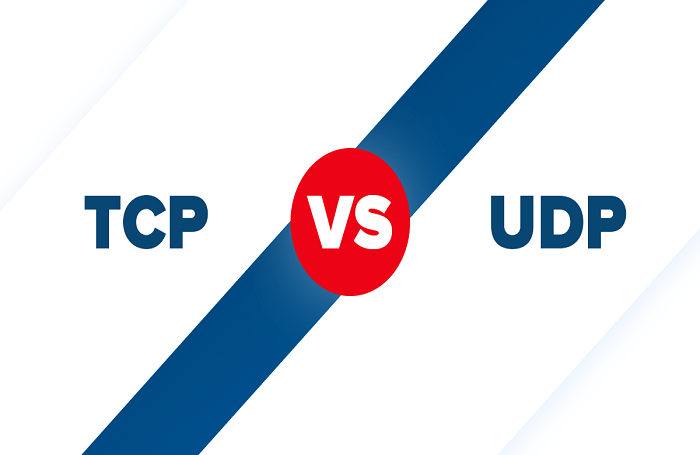
TCP and UDP both are transport layer protocol stack, and both use IP protocol for better connection. To understand the difference between TCP and UDP, just read it.
What is the TCP?
TCP stands for Transmission Control Protocol. It is used to establish a connection between two computers. To understand it, let’s take an example of a landline telephone connection.
Dial number to establish a connection with the receiver. Receiver has to answer the call to establish the connection and transfer the message.
Features of TCP:
Data Delivery:
TCP protocol ensures that data receive correctly, and to ensure it. TCP first establishes the connection with the receiver and then communicates using a three-way handshake procedure.
If the user tries to download data without a TCP connection, then some data could be missing.
Protocol:
TCP uses a three-way handshake protocol to establish the connection. In this procedure, TCP will send an SYN message to the receiver and ask for the connection establishment.
After receiving the message, the receiver sends back the SYN-ACK message for the establishment of the connection.
After establishing the connection both the users can easily transfer the message one by one. TCP is one of the most widely used protocols over the TCP/IP network.
What is UDP?
The UDP stands for User Datagram Protocol, and it just works like TCP, but it uses the connectionless protocol.
It will not establish initial connection establishment for communication which means it does not guarantee data loss.
During the communication, data will be missing and does not reach the receiver. It is also known as the “fire-and-forget” protocol.
The UDP process does not provide any confirmation message for data receiving and it does not care whether the data is received or not. UDP is comparatively faster than TCP.
Features of UDP:
Fast Data Transfer:
Due to the connectionless establishment, UDP is faster than TCP while transferring the data. It is used where fast communication is required.
Difference Between TCP and UDP:
TCP:
- TCP stands for Transmission Control Protocol.
- It is connection-oriented.
- It transfers data in packets which is known as a segment.
- TCP contains a header of 8 bytes.
- After transferring data TCP sends the acknowledgement message for confirmation.
- TCP also supports an error control mechanism.
- It uses a communication process using port numbers.
- The transmission speed of the packet is low.
- TCP provides a process-to-process communication, stream delivery service, reliable service, flow control, error control mechanism, full-duplex communication, multiplexing, demultiplexing, acknowledgement number, system number, sequence number and byte number.
- It is reliable and also provides a window mechanism.
- TCP tracks all transmitted data, requiring acknowledgement per byte.
- The TCP protocol mainly used in these places like military services, web-browsing and email for secure and reliable communication.
UDP:
- UDP stands for User Datagram Protocol
- It is connectionless, and it does not establish a connection before communication.
- The UDP does not use sequence numbers for collecting data, so it is hard to find the missing data.
- It does not provide flow control service, and it is also not a reliable service provider.
- The UDP does not have any window mechanism, and it also not supports the retransmission of the datagram.
- UDP does not provide any guarantee.
- The UDP features are process-to-process communication, multiplexing, and demultiplexing with encapsulation and decapsulation.
- It will not send any acknowledgement message after delivering the data.
- UDP can handle a small to moderate amount of data in the database.
- UDP header is more significant than TCP. In addition, it contains 20 to 60 bytes.
- The UDP uses port numbers and IP address for process-to-process communication.
- The transmission speed is high in comparison to TCP.
- This UDP protocol primarily used for fast communication platforms such as VoIP, game streaming, video and music streaming. .
Conclusion:
In this guide, we discuss the difference between TCP and UDP. Both are transport layer protocols and very much necessary in a unique way. Users can use it as per the requirement of work and share their experiences with us.










